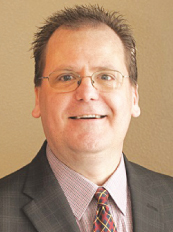
"When life gives you lemons, make lemonade" is a phrase often used to encourage optimism and a can-do attitude in the face of adversity or misfortune. When speaking with credit unions facing big challenges especially with earnings or growth, I like to tell them about Teri Robinson and Pacific Northwest Ironworkers Federal Credit Union in Portland, Ore.
Robinson took the helm there in March 2010 – just in time to receive a letter that would forever change her leadership path. "The NCUA told us we were in net worth restoration and that we had been downgraded," Robinson said, explaining that her credit union was struggling with its loan losses. "I was the new CEO and I remember thinking, 'What have I done? Am I setting myself up for failure? Is it worth it to do this?'"
Recommended For You
Robinson isn't alone: Smaller credit unions make up the majority of our numbers and are facing significant challenges. To survive, smaller credit unions will need to adapt, learn, adjust, innovate and collaborate.
Robinson decided that survival was the only option for her. "The first step was convincing the NCUA that we were in it to win it, and that I was willing to do whatever it took," she said, adding that she fought hard to keep the credit union's three-branch footprint – one in Portland, one in Tukwila, near Seattle, and one in Spokane, Wash. – up and running.
The second step, Robinson said, was to radically (and creatively) cut expenses. "I called anybody and everybody we did business with," she said, "and 90% of them did something to reduce the expense." Robinson also looked for ways she could run more efficiently, enlisting the help of her employees and overhauling the credit union's lending model as part of its net worth restoration plan.
The third step, she said, was getting in contact with the people and organizations that would provide support, including the National Federation of Community Development Credit Unions. The Federation leveraged Pacific Northwest Ironworkers' low-income designation for secondary capital and, slowly, the tide began to turn. Now with $14 million in assets, Pacific Northwest Ironworkers' is a "lending machine," with loans up 40% and an 8% average loan yield.
Robinson is one of hundreds of leaders that have managed to turn foreboding and hopelessness into success at their small credit unions. And while each credit union turnaround comes with a different set of circumstances, these best practices are key to recovery:
Be willing to change and learn new things. The same actions more often than not lead to the same results. Accept that changes are on the way and utilize the experience to learn new best practices.
Communicate with examiners to find common ground. If yours is a credit union in net worth restoration (or getting too close for comfort), the best thing you can do is communicate with examiners early and often. According to Robinson, "Having (the examiners) believe that I had faith in what I was doing helped them to relax.
Utilize credit union expertise. Sometimes, it's a matter of being in touch with the right people and looking for every opportunity to position yourself for success. Look to your mentor, your association, or to other credit unions in your area. "For me, just the glimmer of hope with the Federation was what I needed," Robinson said.
Create and commit to a plan. Reduce expenses and mitigate losses going forward. "We reigned in on our loan underwriting," Robinson said. "We made sure the loans that we were putting on were no longer going to experience such losses."
Take action. Be willing to roll up your sleeves to save money. Sometimes you have to work the phones and pound the pavement to see your plan come to fruition.
Keep looking to the future. Hard times don't occur in a vacuum. Robinson did double duty, implementing her plan to save Pacific Northwest Ironworkers while looking for ways to improve and innovate. In addition to developing new programs such as remote capture, credit union staff got serious about member recruitment. "We weren't taking advantage of our opportunities," Robinson said.
Smaller credit unions are being squeezed tighter than ever, but Robinson's story proves that where there is a will, there is a way. The fight to save a struggling charter is not easy. But it's worth it for those credit union leaders who believe that their charter can still be relevant in the lives of their members.
Scott Butterfield, CUDE, CUCE, CCUE is principal of Your Credit Union Partner in Sumner, Wash. He can be reached at (253) 507-2443 or [email protected].
© 2025 ALM Global, LLC, All Rights Reserved. Request academic re-use from www.copyright.com. All other uses, submit a request to [email protected]. For more information visit Asset & Logo Licensing.







